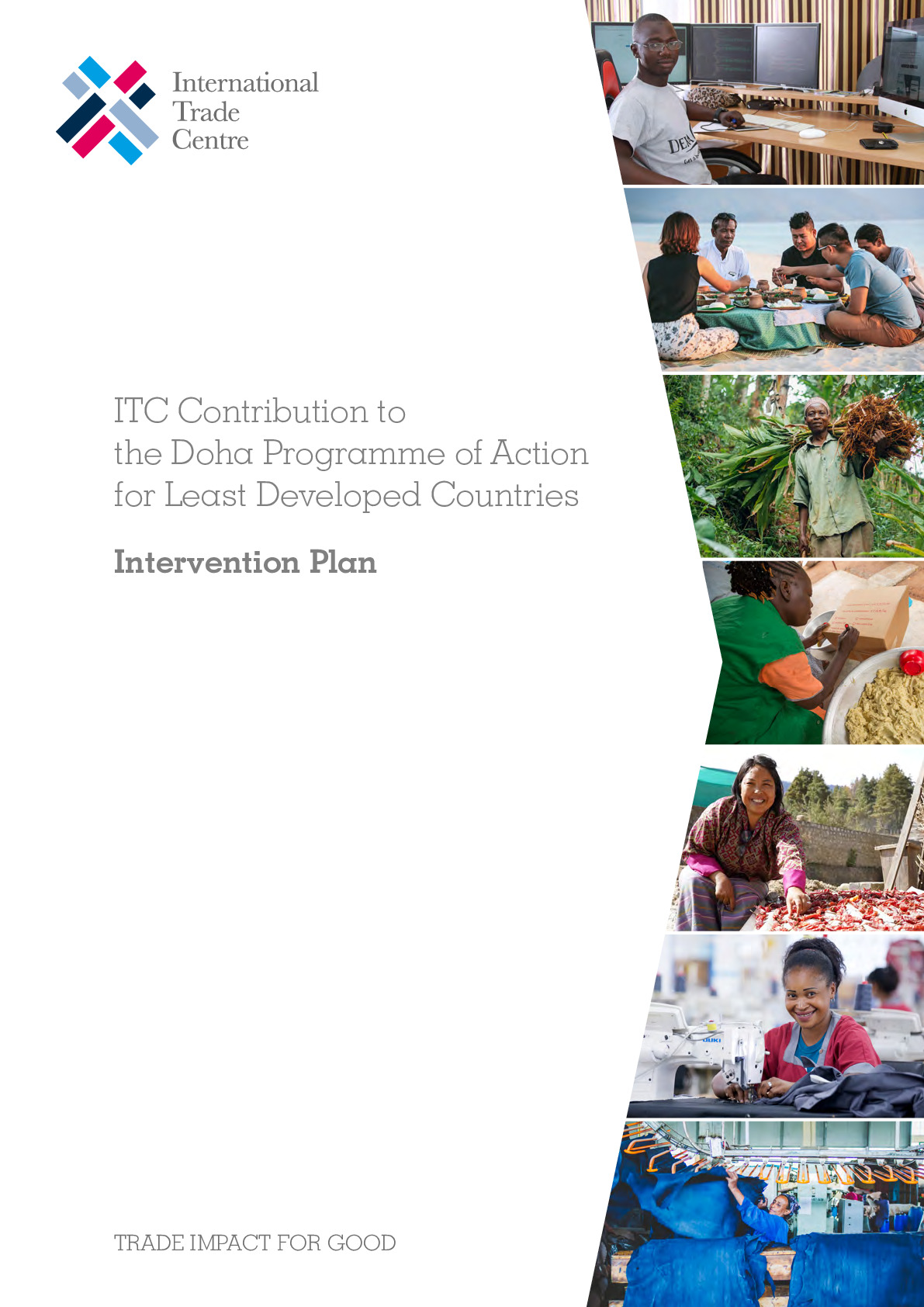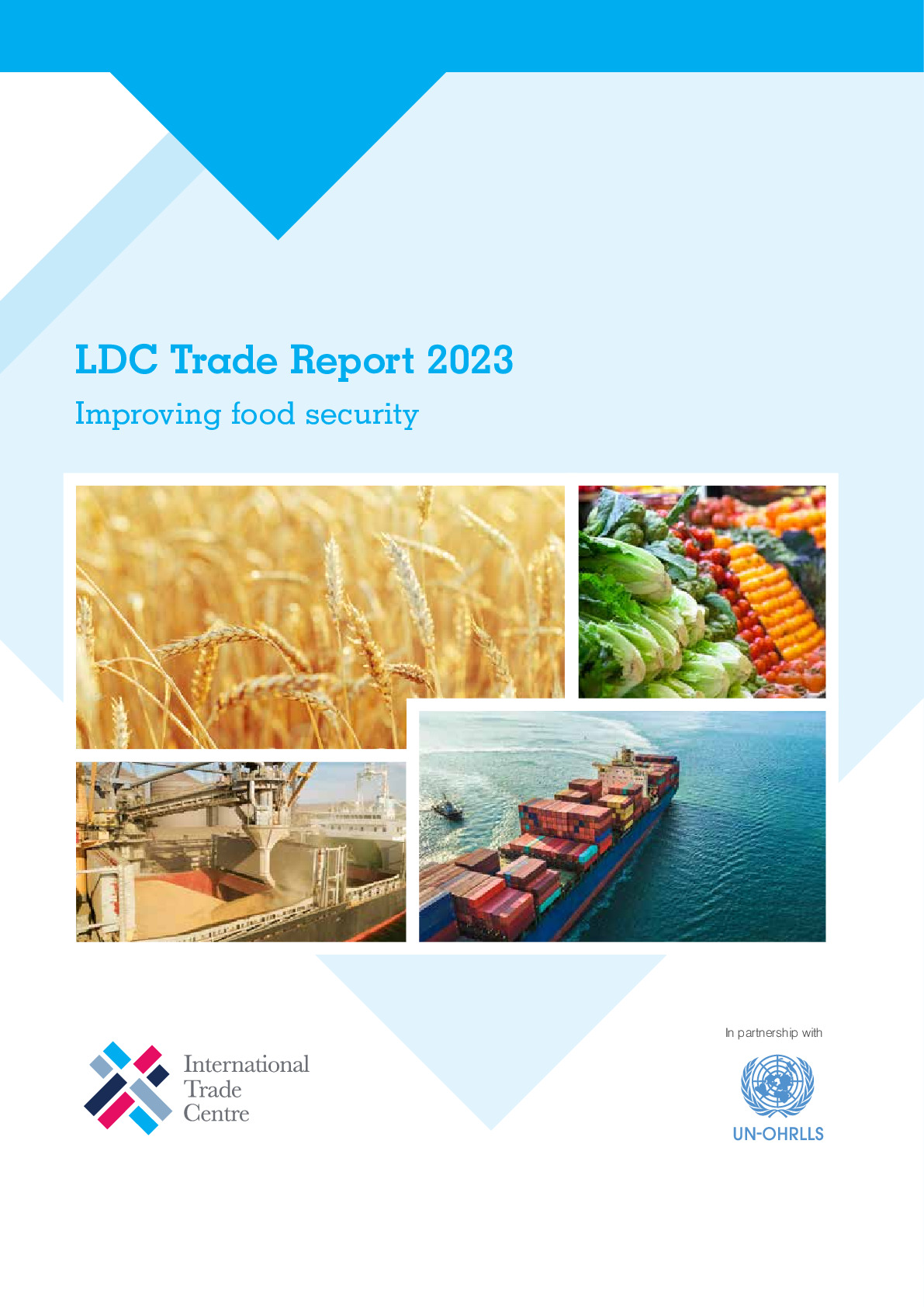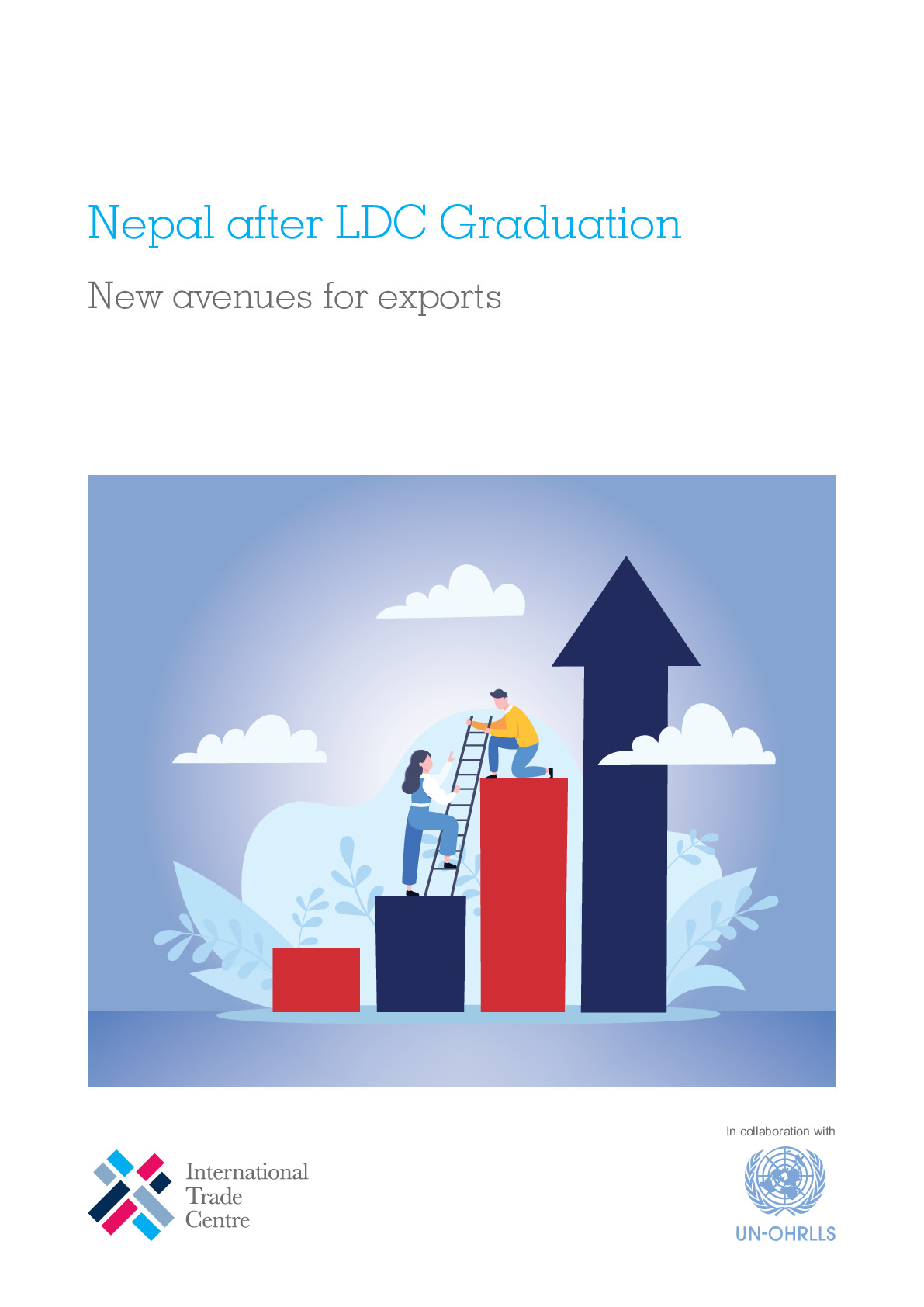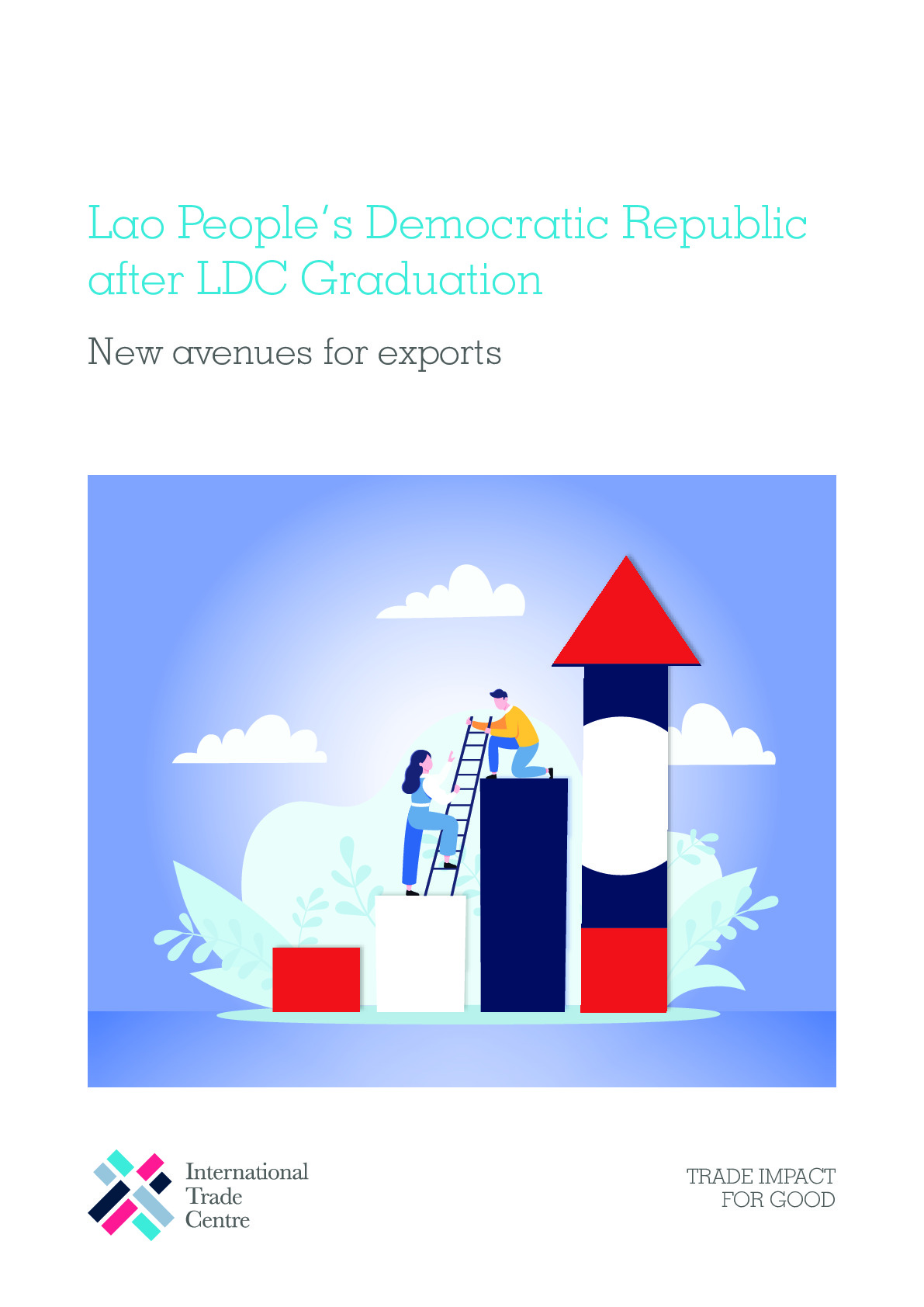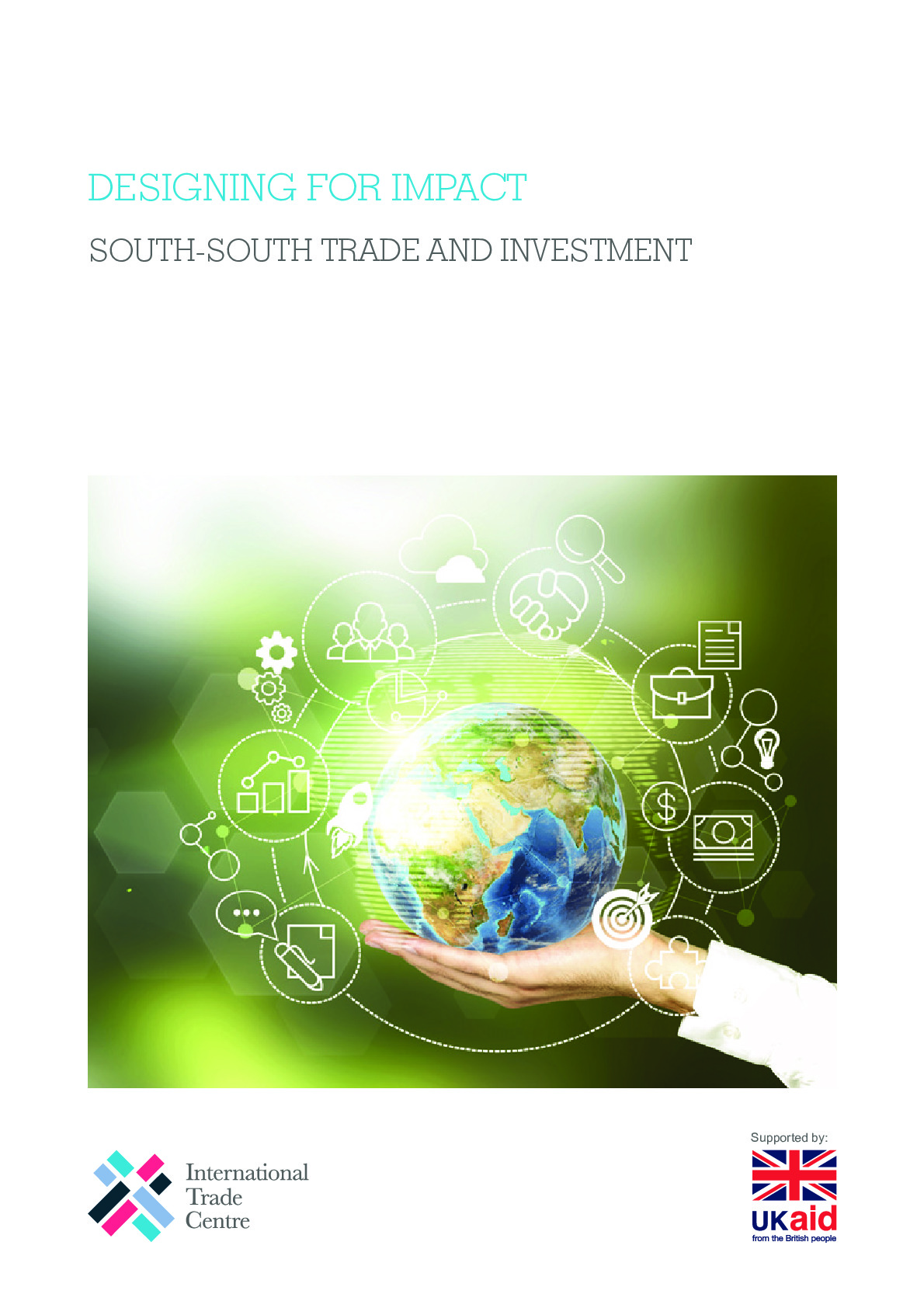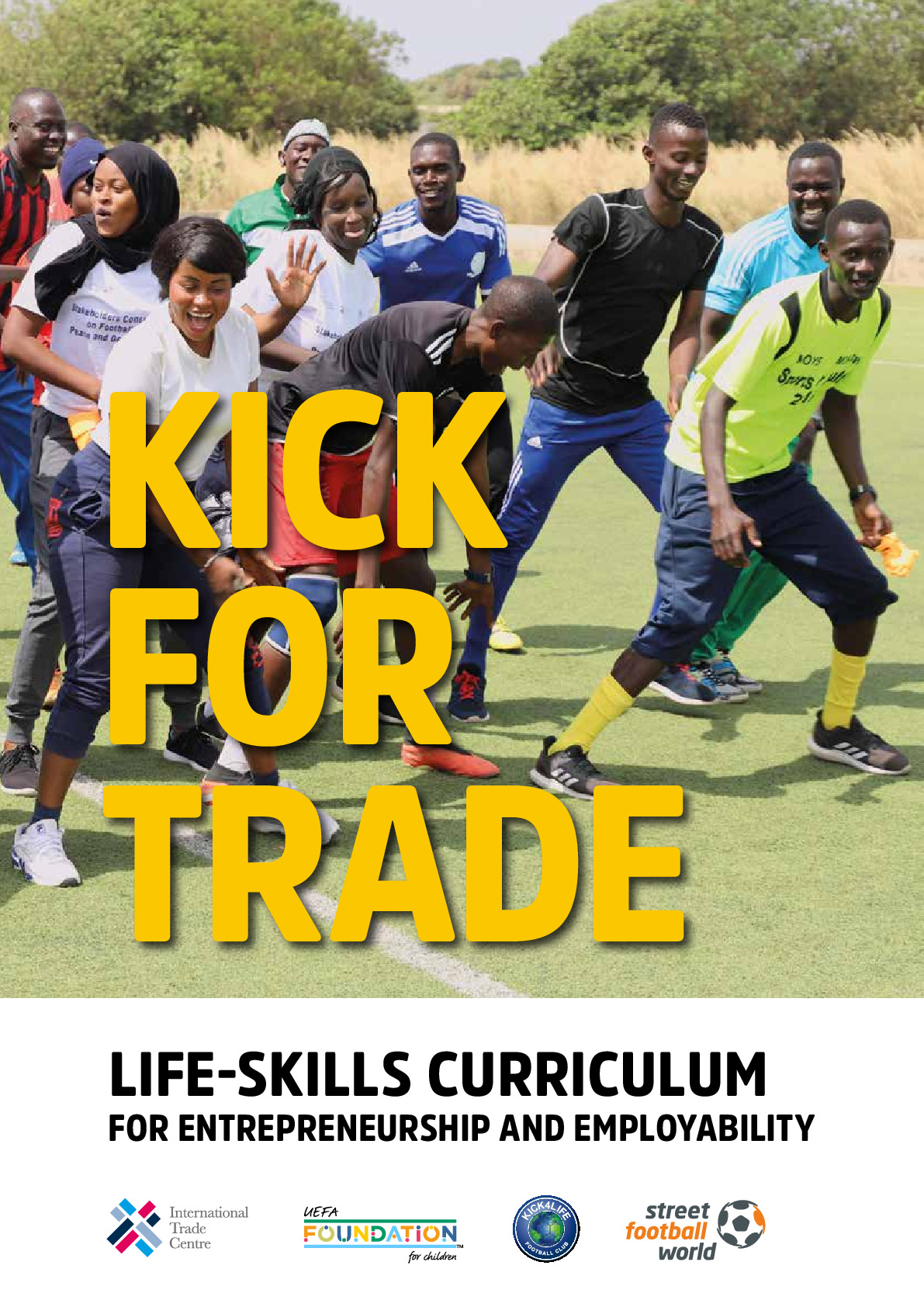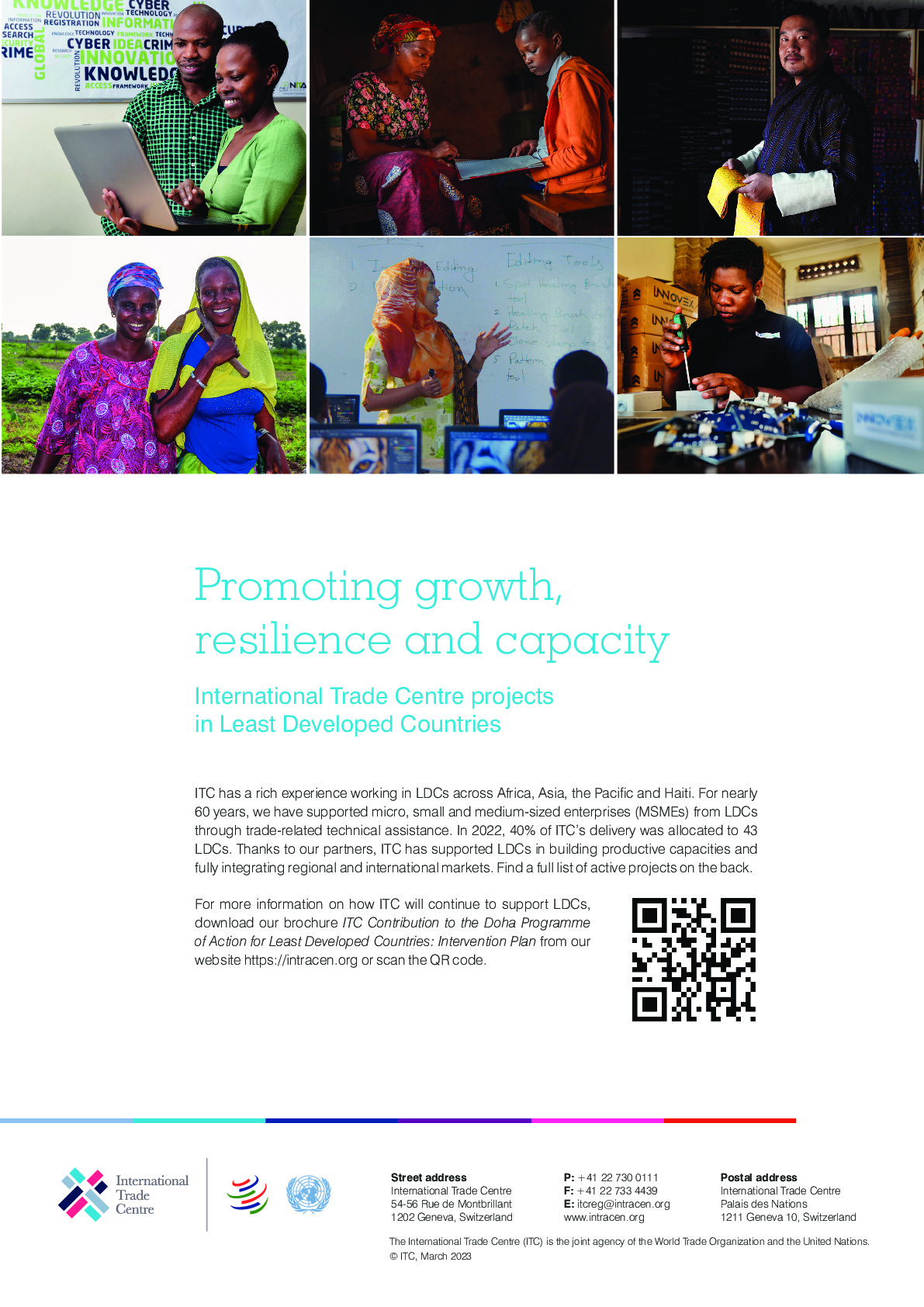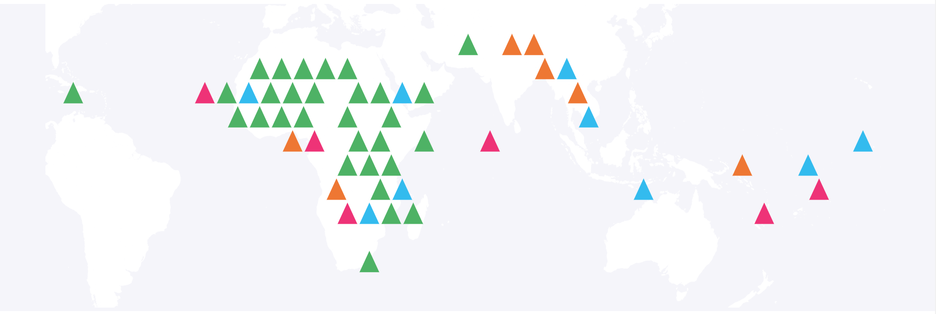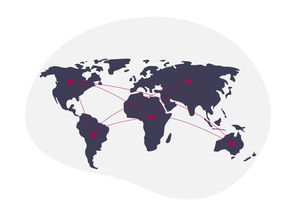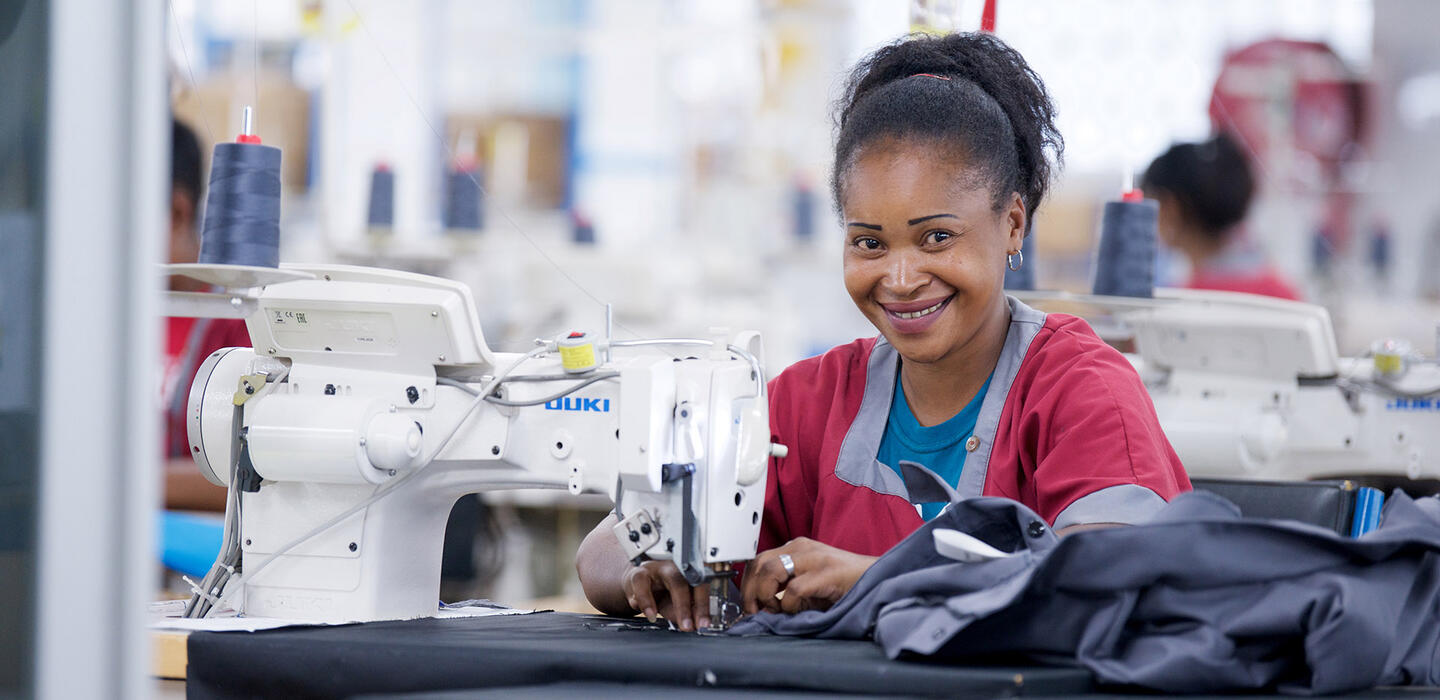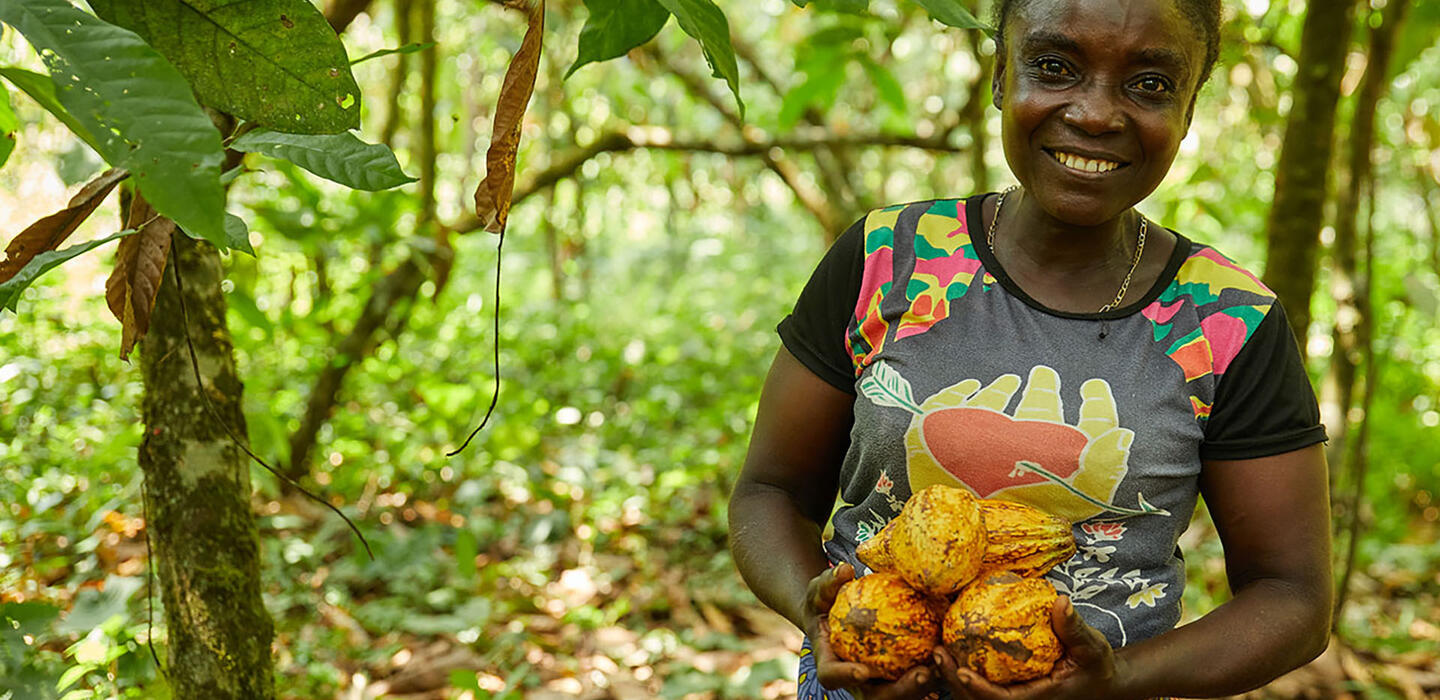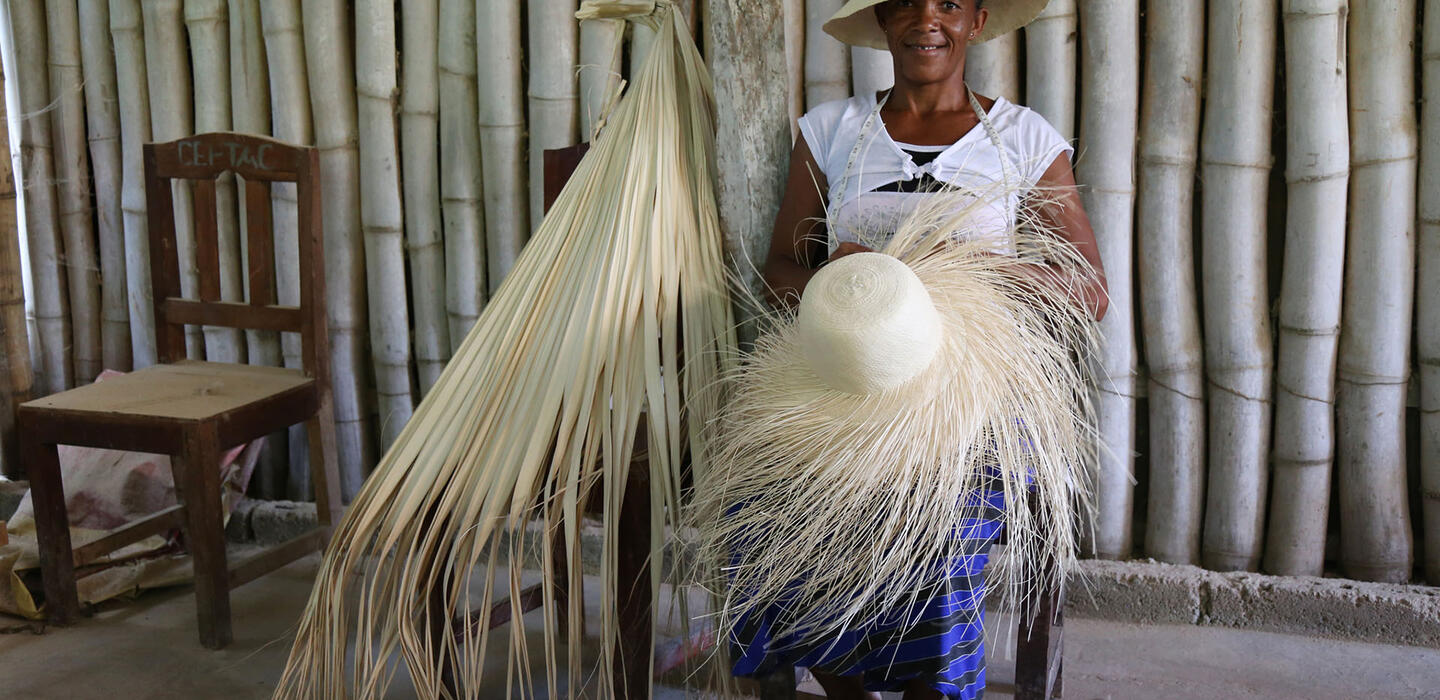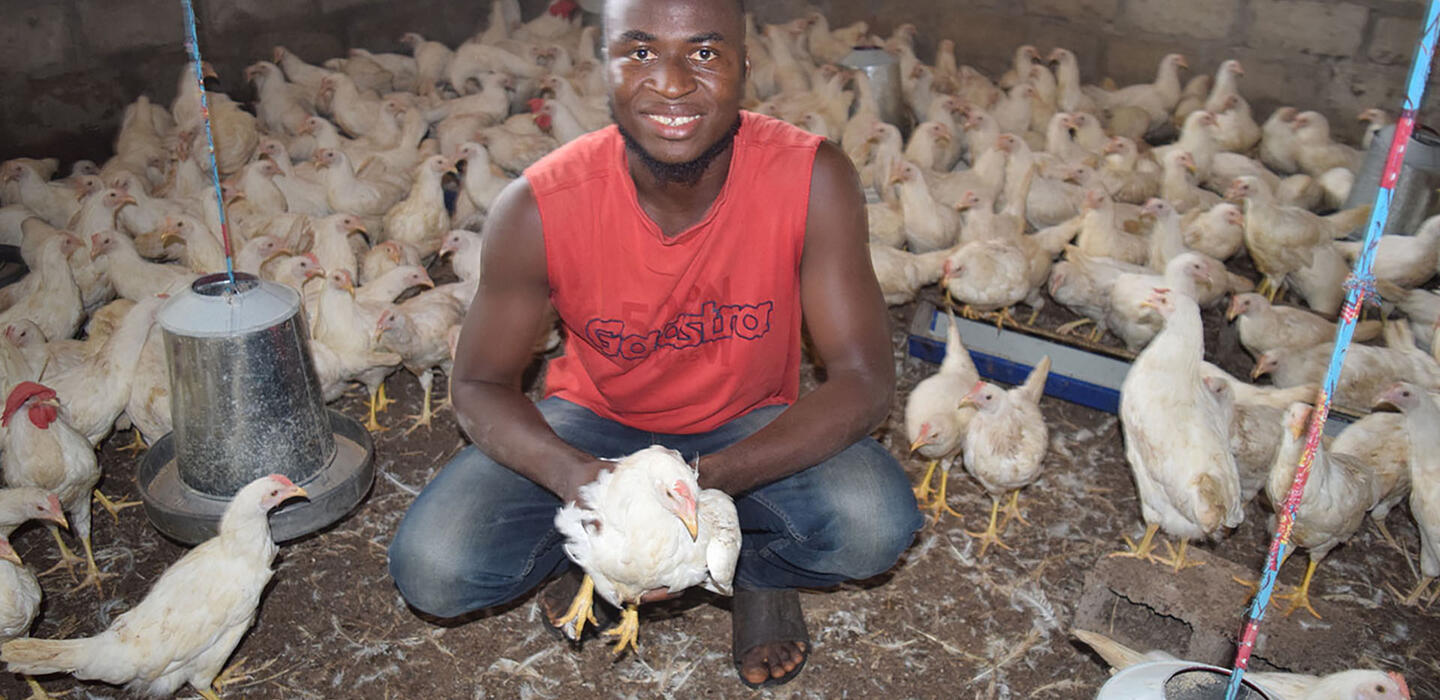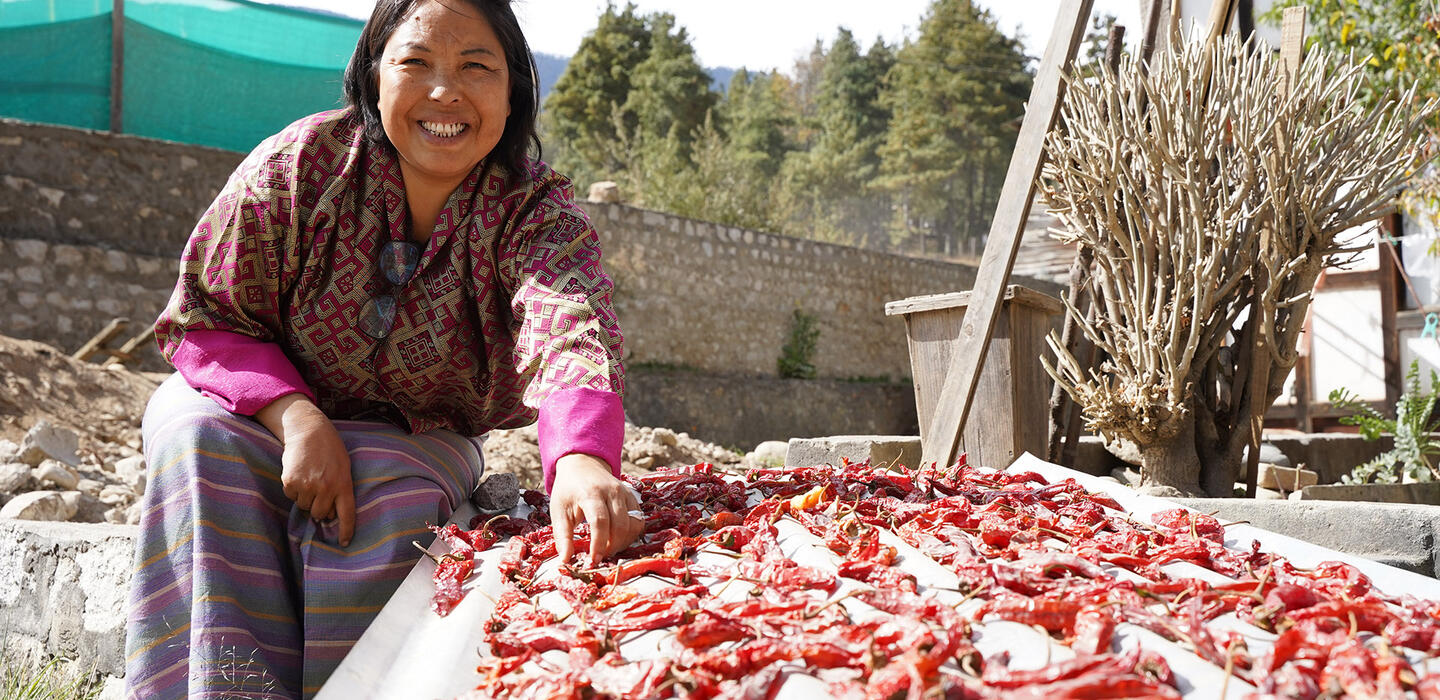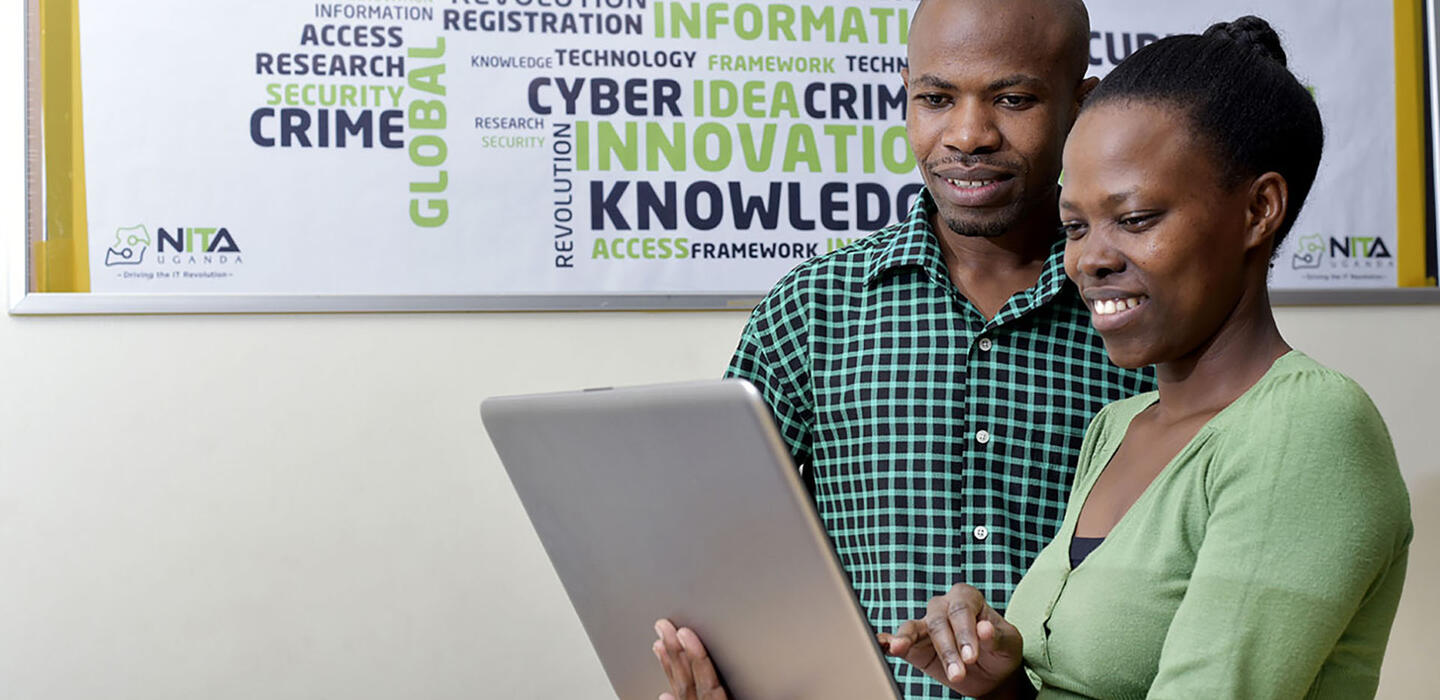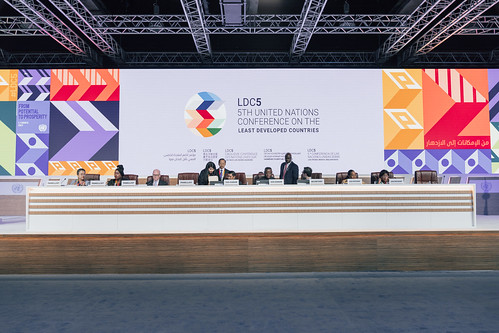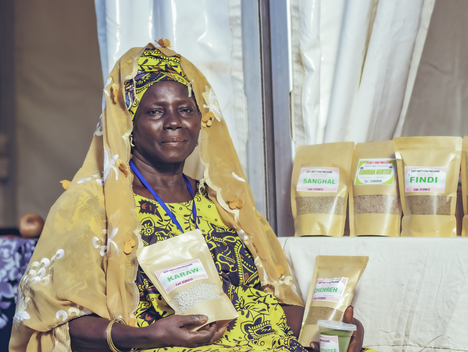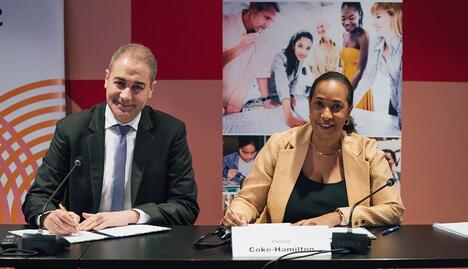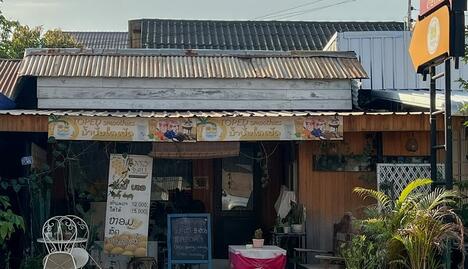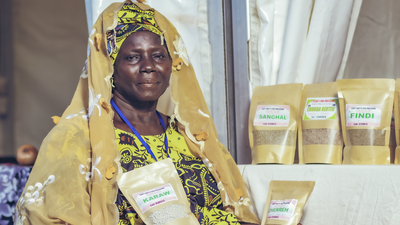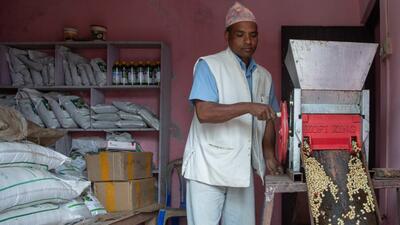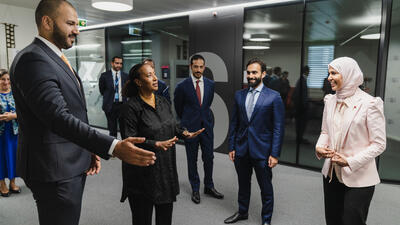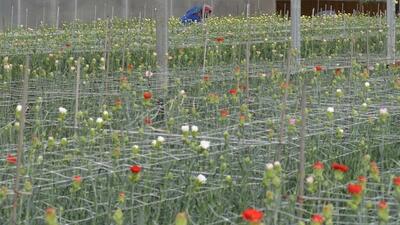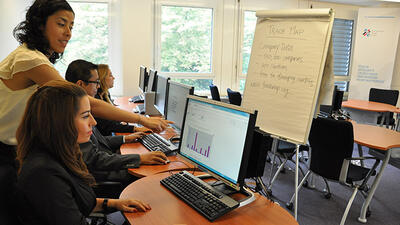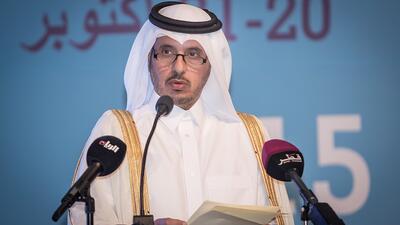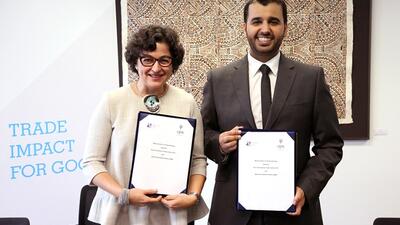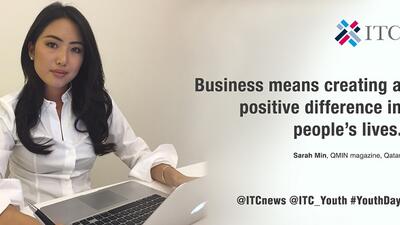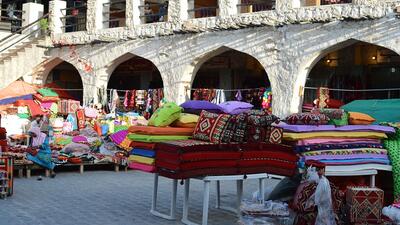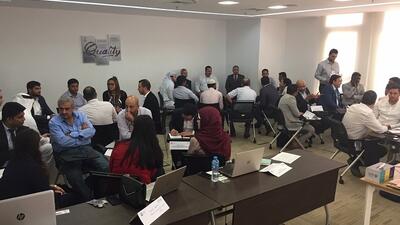ITC @ 5th United Nations Conference on the Least Developed Countries (LDC5)
Overview

The Fifth United Nations Conference on the Least Developed Countries (LDC5) is a forum to discuss what it takes to unleash the full potential of LDCs and how the international community can help them take steady steps along the road to prosperity.
At LDC5, ITC will organize a series of sessions highlighting the role of trade and small businesses as a driver of growth in LDCs.
Programme
Monday, 6 March
Young people lack access to relevant opportunities and support networks in relation to skills development, jobs, opportunities for entrepreneurship, markets, finance. We need to empower our youth through an enabling ecosystem covering policy, business support organisations, access to finance and linkages with private sector partners. An exciting speaker line-up ensures that all perspectives are represented.
• Ms. Pamela Coke Hamilton, Executive Director, International Trade Centre (ITC)
• Mr. Gunter Beger, Managing Director, United Nations Industrial Development Organization (UNIDO)
• Representative of the Ministry of Sport and Youth of the State of Qatar
• Mr. Nizar Yaiche, Leader, Global Digital Network, Government & Public Services, PricewaterhouseCoopers Partner
• Mr. Mayank Dhingra, Senior Education Business Leader, Southern Europe, Middle East and Africa (SEMA), Hewlett Packard
• Mr. Carl Manlan, Vice President, Inclusive Impact & Sustainability, Central & Eastern Europe Middle East and Africa (SEMA), Visa
• Ms. Dhuha Abdulmunem, Manager, Iraq Response Innovation Lab (IRIL) – Ye! Community Chapter Iraq
• Ms. Mara Zhanet Michelo, CEO and founder, Jacaranda Hub
Moderated by: Mr. David Cordobés, Head of Youth & Trade programme, ITC
It is expected that African start-ups funding will grow to $10bn by 2056 (World Economic Forum, 2022). In 2021, tech start-ups in Africa reached approximately $2.15bn in capital investment to drive their economic activities. Start-ups Acts were concluded in a number of African countries, such as in Senegal, Tunisia and recently in Nigeria. These are paving the way for policy instruments aimed at boosting key incentives for young people to start and fast track their businesses.
The focus of the side event is to advocate and sensitize African leaders, development partners, private sector, civil society, and governments at all levels to renew and strengthen their commitments to the development of a vibrant start-ups ecosystem that promotes innovation and digital transformation. The main objective is to enhance an enabling environment for African start-ups and young entrepreneurs to deploy digital technology to create jobs and drive future economic growth of African LDCs within the framework of Industry 4.0 and economic recovery post-COVID19.
Tuesday, 7 March
Beyond the immediate imperatives for businesses to weather the current turbulence in the macroeconomy, we consider the longer-term implications of trade shifting to e-commerce and try to understand how far and in what way this can support the sustainable development in LDCs.
The session will showcase experiences at the enterprise level and explore success stories on how to create the right environment to enable development benefits from e-commerce by governments and development partners. The panel of experts includes:
• Ms. Pamela Coke-Hamilton, Executive Director, ITC
• H.E. Seedy Keita, Minister of Finance and Economic Affairs, The Gambia
• Mr. Torbjörn Fredriksson, Head, E-commerce and Digital Economy Branch Division on Technology and Logistics, UNCTAD
• Dr. Cosmas Zavazava, Director of the Telecommunication Development Bureau, ITU
• Ms. Nawshin Khair, Managing Director Aranya Crafts Ltd., Bangladesh
• Ms. Tadhim Uwizeye, Founder and CEO of Olado, Rwanda
Moderated by: Mr. James Howe, Head Digital, Markets and Connectivity, ITC
This session is organized in partnership with the International Telecommunication Union (ITU) and the United Nations Conference on Trade and Development (UNCTAD).
Young people are leaders in digital transformation today. We must empower and acknowledge young voices in this space as we work towards engaging youth in the digital development dialogue to build a more connected global community. With initiatives like ITU’s Generation Connect and UNCDF’s Inclusive Digital Economies to Leave No One Behind, and ITC’s FastTrackTech, Youth and Trade and ecomConnect, this thematic session will explore the benefits of developing digital solutions to fully unlock youth’s potential.
Co-designed and led by youth, this session will explore pathways towards bridging the digital divide and fully seize youth potential towards the implementation of the Doha Programme of Action by addressing the following questions:
What are the major digital challenges facing young people in LDCs today?
What capacity building efforts and digital innovation ecosystems need to exist to address the digital skills gaps amongst young people today and in the future?
How can youth in LDCs be meaningfully included in international digital development dialogues and policies?
What are the solutions to fully bridge the digital divide and empower youth to become actors of change?
The session will showcase experiences at the enterprise level and explore success stories on how to create the right environment to enable development benefits from e-commerce by governments and development partners. The panel includes innovators from IBM, Thundafund Africa, Ennovate Hub Tanzania, as well as ITC and ITU.
This session is organized by ITC in partnership with the International Telecommunication Union (ITU) and the UN Capital Development Fund (UNCDF).
Wednesday, 8 March
Financing is key to MSMEs’ ability to adapt to climate change, grow their businesses sustainably and contribute to graduation and wealth. This is particularly the case for companies involved in sectors of economies where inputs have to be purchased in advance of sales invoicing, such as food and agri-business.
ITC has developed an end-to-end access to financing approach for MSMEs that was tested successfully in Tanzania in 2022. It combines de-risking guarantees from development financing institutions (DFIs) and Tanzania’s PASS Trust with coaching in financial management, document assembly and loan performance to overcome the challenges. This has led to over 70% of applicants receiving loans within a short period and follow-on investment in some cases for ESG and climate adaptation purposes.
Join us for a look at this successful pilot project and wider take-aways for access to financing in LDCs.
• Mr. Ashish Shah, Director of Country Programmes, ITC
• H.E. Mr. Elias Mubanga, Minister of Small and Medium Enterprise Development of Zambia
• Dr. Agnes Kalibata, Executive Director, AGRA
• Mr. Joseph Midunga, Founder and CEO, Tanzania Association of Professional Business Development Services (TAPBDS)
• Mr. Robert Lawuo, Business Development Manager, Private Agricultural Sector Support Trust (PASS)
Moderated by: Mr. Ian Sayers, Senior Adviser, Access to financing & investment, ITC
5-9 March
Main LDC5 Exhibition Area, booth 42: Promoting growth, resilience and capacity in LDCs
5-7 March
Private Sector Forum Exhibition Area, booth 7: Empowering entrepreneurs in LDCs
Inequality is built into the global economic system. Least developed countries need access to markets and the know-how to benefit from them.Trade tackles the root causes of obstacles holding back least developed countries.
What needs to be done?
- Strengthen regional value chains through training to improve productivity, add value to goods and services, and develop export-quality offerings.
- Provide digital tools to overcome economic and geographic remoteness.
- Build a business-friendly ecosystem by strengthening institutions and reforming policies.
- Prioritize the low-carbon transition for new business opportunities.
- Have specific initiatives to support women, youth, people with disabilities, refugees and those in the informal sector.
- The 4C crises – COVID-19, climate, conflict and cost of living – give an unprecedented opportunity to push for systemic change. That means tackling the root causes of inequality, rather deal with its symptoms.
The future of trade is connected, green and inclusive
During the pandemic, a third of global GDP was being traded online. Yet least developed countries lag behind. While the vast majority of the one billion people in least developed countries is covered by a mobile broadband signal, 75% remain offline.
What to do
Look hard at the details: Getting infrastructure in place and devices in people’s hands is the first step. Now those connections need to become stronger and more frequent. Connecting once a month with unstable internet is not the same as daily use of email to do business.
Make connectivity affordable: In Africa, more people have access to internet, but fewer people are using it. The usage gap has grown from 36% in 2014 to 53% in 2020. Lower the cost of usage. For example, one gigabyte of data in São Tomé and Príncipe costs more than $40, but only $0.04 in Israel.
Invest in knowledge and skills: Nearly 40% of small businesses in least developed countries said a lack of e-commerce skills and business knowledge are major bottlenecks for conducting online business.
What ITC is doing
Switch ON expands ITC’s digital initiatives on e-commerce and tech entrepreneurship to reach thousands of small businesses, including in least developed countries.
A new partnership with Google and the International Chamber of Commerce will equip 1,000 small firms in Southeast Asia with digital export-relevant skills, with a focus on market research and digital marketing skills.
The SME Trade Academy has enrolled more than 400,000 people in more than 100 free courses. Topics range from export development to sustainability, trade support, entrepreneurship, e-commerce and market analysis.
Trade makes low-carbon technologies more widely available, and enhances access to finance for investment in climate-friendly practices. The good news is small businesses are willing to make a change. They just need help to do it.
What to do?
Get small businesses ready for the low-carbon transition: Environmental risks are significant for nearly 70% of African small firms – but less than 40% can do something about it. Their biggest needs are access to affordable, short-term financing, technology and skills.
Ensure emerging policies do no harm: Due diligence and deforestation laws should be followed up with targeted training and support programmes for businesses, so they understand how to adapt and benefit from new opportunities.
Keep development at the forefront: As demand for fossil fuels declines, least developed countries risk being left with stranded carbon assets. For example, between 2018 and 2020, about 80% of least developed countries were classified as commodity dependent. In short, the low-carbon transition needs to be a just transition.
What ITC is doing
The Climate Competitiveness Assessment Tool analyses climate-related risks and opportunities along agricultural value chains. The tool guides decisionmaking, and has been used in 10 ITC projects.
The Climate Smart Network, a US partnership, is a new online platform that lets multinationals source from small, green businesses in developing countries.
GreenToCompete Hubs are active across the world, including in two least developed countries: Lao PDR and Nepal.
Trade empowers women. Women who export are more productive than men who export. Yet women take on the bulk of informal work, receive less pay for the same work, are disproportionately affected by crises like the pandemic or climate change.
What to do?
Be “gender intentional”: Ensure women are at decision-making tables. Plan projects with women’s needs in mind. Consider specific issues, like childcare.
Move to non-traditional industries: Our recent Made by Africa report with the African Union and the European Union highlights four forward-looking sectors for the continent: pharmaceuticals, baby food, cotton clothing and automotives. Also embrace the services sector. Services account for more than 40% of merchandise exports in at least 13 least developed countries and is worth more than all goods exports in four least developed countries.
Focus on public procurement: Just 1% of public procurement opportunities globally go to women. A more conducive environment will allow women to participate in and win contracts.
What ITC is doing
In 2017, ITC led the Buenos Aires Joint Declaration on Trade and Women’s Economic Empowerment. That led to the establishment of the Informal Working Group, which produced a gender lens framework for the WTO’s work.
SheTrades, ITC’s women’s empowerment initiative, has connected millions of women entrepreneurs to international markets. It has expanded from an online platform to encompass SheTrades Hubs and a policy tool, SheTrades Outlook. So far, 46 countries have used SheTrades Outlook to identify policy gaps and areas for technical assistance, which ITC provides
ITC offers practical guides to support women’s empowerment, including one on Making Public Procurement Work for Women and on Mainstreaming Gender in Free Trade Agreements.
Photo gallery
Keeping our promises to the world’s most vulnerable
It is time to deliver on our promises to the most vulnerable: least developed countries.These are 46 countries that are most exposed to global shocks and would benefit most from ...
PwC, International Trade Centre partner to develop sports as a sector in developing countries
PwC France and Maghreb and the International Trade Centre (ITC) announced today a partnership to create wealth and jobs for young people and women...
Fancy a cup of coffee from Pakse?
Pinphet Phongsouli not only made drip coffee popular in her hometown of Pakse, but is also a café owner, the first Lao woman to be certified as Q grader, and a Robusta and...




